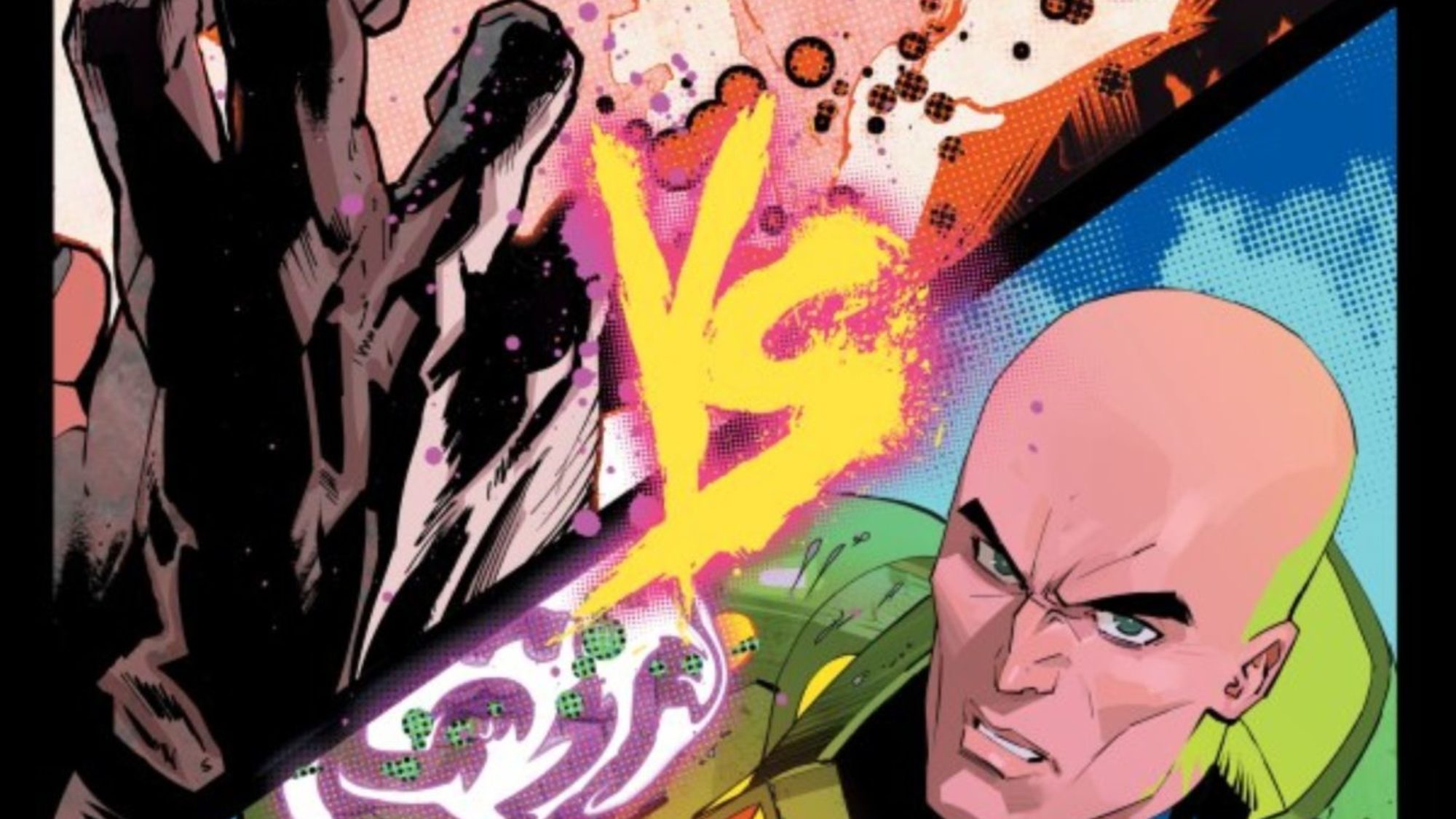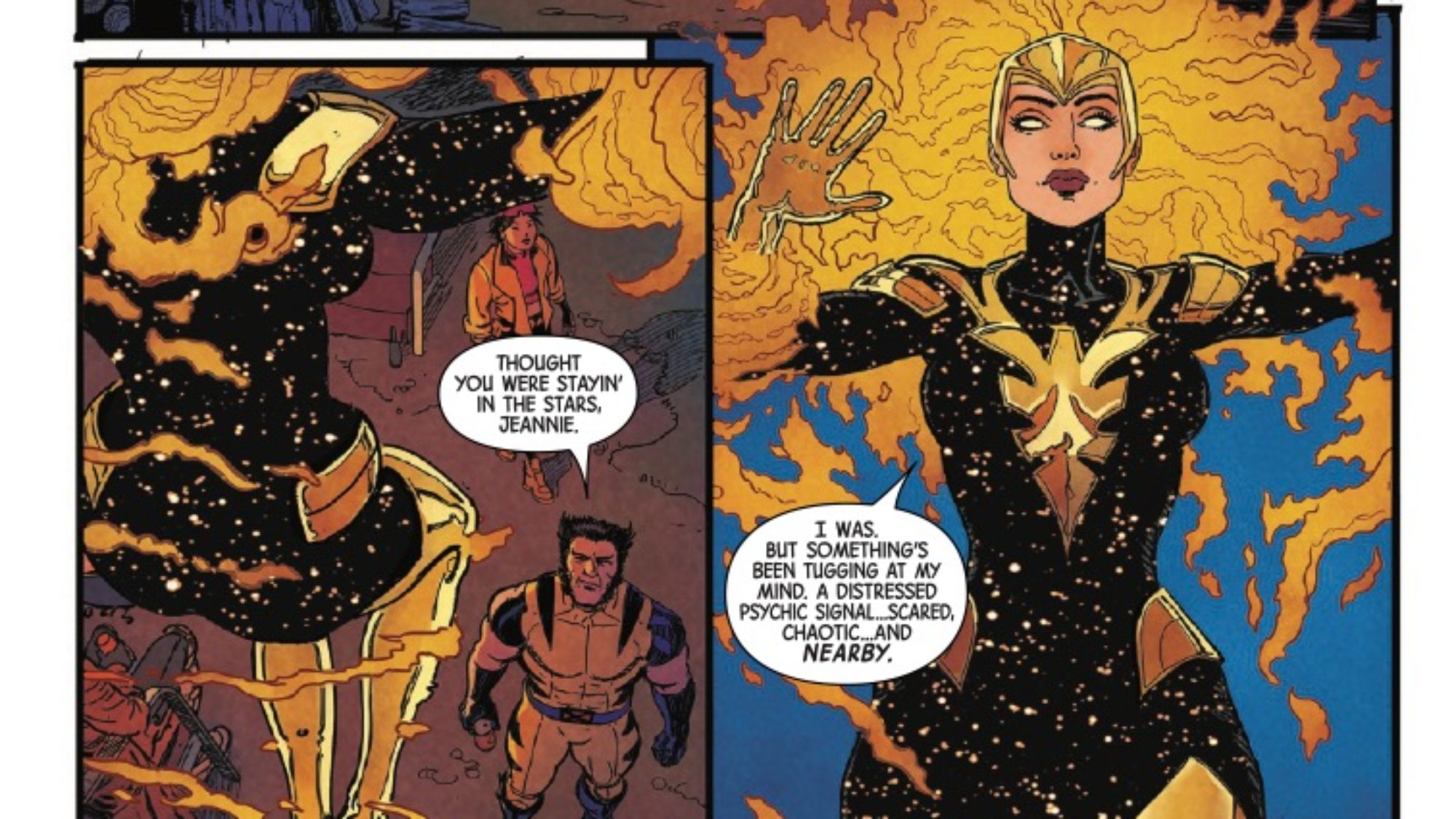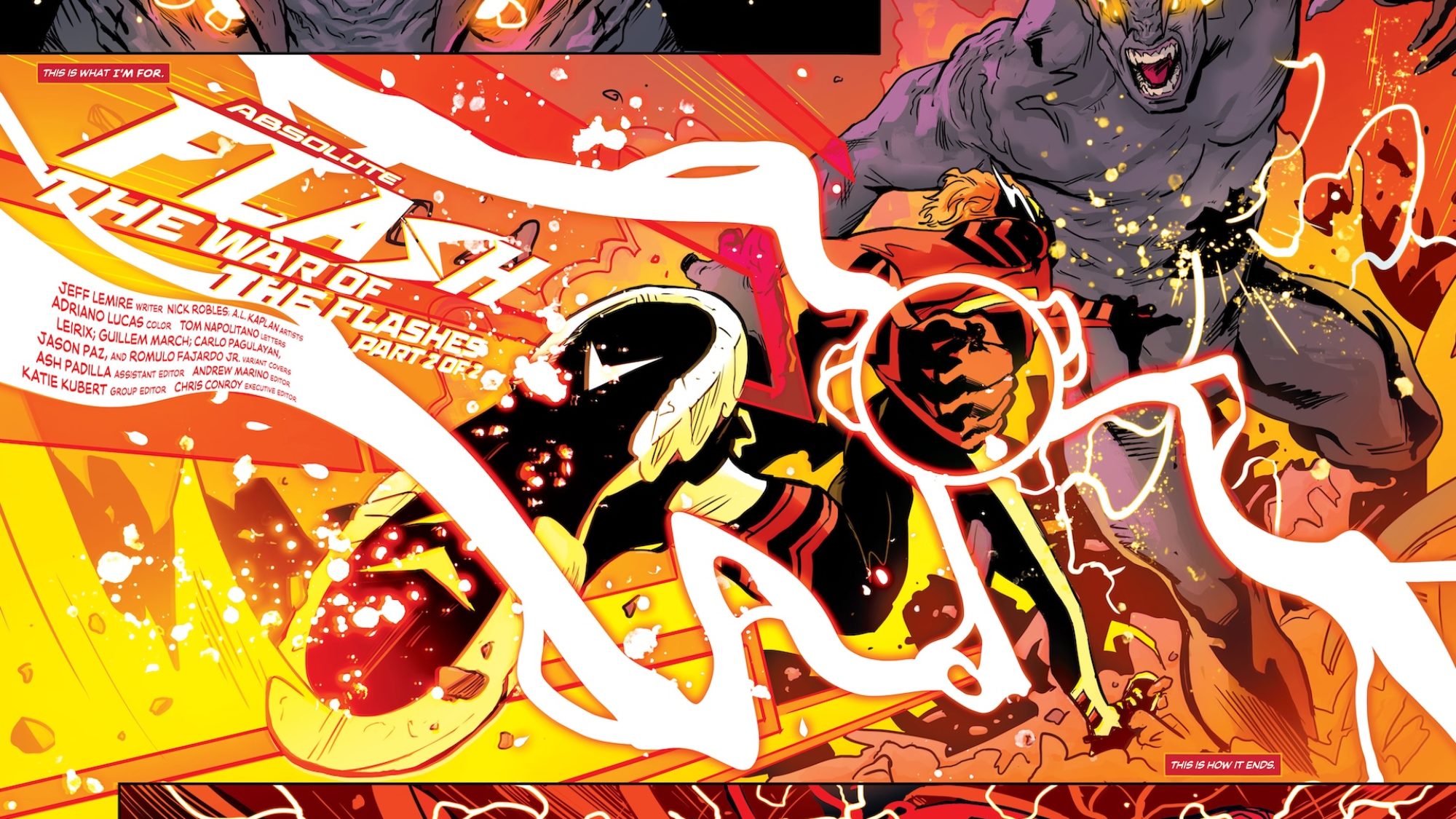Say “white savior” and images of a messianic, hunky white guy comes to mind with the rescue of some savage, uncivilized populace. He’s on some epic journey to fulfil his destiny and find some semblance of peace in his previous life. Put “white savior” in the hands of two wise-cracking guys eager to break genre and you have mayhem, madness, and the onset of a geeky superhero who doesn’t quite score with the chicks. Folks, meet the new comedy duo of Scott Burman and Eric Nguyen, the guys testing the limits of this done-before trope in White Savior.

Colored by Iwan Joko Triyono and lettered by Micah Myers, White Savior could be considered a mix between The Evil Dead and The Last Samurai. Nathan Garin is the token white guy who leads the feudal Japanese Inoki clan against a rival clan with devastating historical consequences. Enter the fish-out-of-water token Asian American Todd Parker, whose grandfather waxes poetic about this time in Japan, and who also happens to chase a pick pocket (Maggie) into this past. Todd manages to wreak all sorts of havoc in this timeline while invoking a bumbling William Wallace vibe in the process.
Burman and Nguyen take vicious joy in trading puns between the many characters and in satirically deconstructing this cinematic trope. They sat down with The Beat to talk about White Savior and who they would most want to see playing the titular characters on the small or big screen. And they’re sending out a call to Tom Cruise and Matt Damon on playing the role of Nathan Garin!
Nancy Powell: How did the idea for this story come about? Did Tom Cruise in the Last Samurai as Todd Parker or Matt Damon in the Great Wall ever factor into the equation?
Eric Nguyen: So we thought of this idea around the time The Great Wall with Matt Damon came out. And we just thought, what if the guy destined to save everyone was an idiot? And the idea just sprang from there.
Scott Burman: Funny enough, Tom Cruise’s name in The Last Samurai is Nathan, and Matt Damon’s last name in The Great Wall is Garin, so that’s how we came up with Nathan Garin, the quote unquote “white savior.” Originally it was a placeholder name, but Eric was like, let’s just leave it like that. And thus, Nathan Garin, the white savior, was born.
Powell: Given the potential controversy in this present social climate, don’t you think the title was a bit ballsy?
Nguyen: Yeah. But if you’re going to go there, why not go all out, that’s what I think. The comic book world is growing and with that, so is the competition and the ability to get your book out there. There are so many great comic books being lost in the shuffle, so when you have a name like “White Savior,” you’re bound to at least get noticed.
Burman: Eric didn’t waver once on naming it white savior. I, as a white guy, didn’t necessarily want my name being Googled with “white savior” next to it, but if we named it something else, we may not have gotten noticed and probably wouldn’t be here talking with you.

Powell: There is a lot of breaking of the fourth wall. What influenced how you approached the story?
Nguyen: We play around with so many different tropes and spoof so many common themes in movies and literature, so breaking the fourth wall seemed like the right thing to do.
Burman: I think a lot of these questions come down to “we thought it was funny at the time.” The main character, Todd, essentially is a sounding board for the audience who have seen these tropes before, and so it seemed both funny and important to the story to just let the audience be in on the joke with us.
Powell: And why set the story in feudal Japan?
Nguyen: (laughing) That’s an interesting question. Scott, you want to take this one?
Burman: So we wrote this seven years ago. And Eric’s not only writing it, but he’s doing the art. Of the two of us, he’s the one with the actual talent. So, while we were working on it, he’d get a cushy gig from Marvel, drawing Wolverine or Quicksilver or something like that, and have to take months off from working on White Savior. At the same time, we also didn’t have a publisher lined up. I came up with the idea, hey, let’s try reaching out to famous Asian Americans – actors, entertainers, etc. – and maybe we’ll convince one of them to let us use their likeness in the comic to both get it sold and hey, a quicker movie deal wouldn’t hurt either. We had a Japanese actor interested, which made Eric start drawing feudal Japan, but… the deal with the actor fell through. Drawing is a lot more time consuming, and Eric already started with feudal Japan, so we said, “you know what, let’s make it feudal Japan.”
Nguyen: Plus, drawing samurai stuff is always cool and badass. That’s my answer. I think it’s a better answer.
Powell: Throughout the books you play with the stereotypes of what it means to be white and Asian. Eric — how did you feel about Todd’s portrayal as the self-deprecating, wise-cracking Asian?
Nguyen: We envisioned Todd as just an everyman. We knew we didn’t want him to be a stereotypical Asian karate expert, or something like that. We wanted everyone in the audience to envision that they could be Todd. And he’s very similar to me in that, I don’t know kung fu, I can’t do math, I’m just a regular guy. And I think everyone out there has that feeling like “wait a minute…something isn’t right here.” And that’s just perfect for the character. To be this wise-cracking guy who can call out the things that we don’t always call out. He’s fearless in the sense that he’ll say the things that everyone is, or should be, thinking.
Powell: Scott — how did you feel about the portrayal of Nathan as the “loud and obnoxious chosen one”?
Burman: Can I do a “no comment” here. Ha. That’s what I’ll do. I’ll throw a “no comment” out here and avoid any Twitter crazies writing anything based on my response.
Powell: Did you both whip up the dialog? Who was at the quick and ready with the punny one-liners? And ever think a comedy duo could be in the works?
Nguyen: Scott’s a crazy person in general. And with one-liners, he’s definitely a maniac. In a good way. Like, every idea we’d have, every joke setup, he’d have five different punchlines. He’d have more ideas in a minute than most writers I’ve worked with would have in a year.
Burman: Eric was actually the one who pushed the envelope with the jokes a lot more. I wrote a bit more defensively with this – with a bit of fear like, are we going too far? And whenever I’d ask that question, Eric would take the joke a little bit further. And it worked every time.
Powell: Let’s talk about the process of working together. How did you both approach the script and art? Were long Zoom sessions involved? In-person meetings required?
Burman: We’ve actually never met in person.
Nguyen: Yeah. Seven years we’ve been working together, and never in the same place at the same time. I’m in Northern California, he’s in Southern. Everything we did, we talked on the phone.
Burman: The last few years, I probably talked to Eric more than anyone else in my life. It’s probably the worst thing that could have happened to Eric. To partner with me and have me text him all the time.
Nguyen: Yeah, I thought about changing numbers at one point…I’m just kidding. We worked great together. It was just an environment of fun. So many books are so serious, and we just had a good time doing this one. We wrote an outline together, I’d draw it, and then we’d sit down and just go back and forth sharing ideas for jokes. We wanted to fill the pages with jokes. I’d sometimes get a text at two AM, and Scott would have just thought of the perfect punchline.
Burman: And Eric would text back “leave me alone, I’m trying to sleep.”
Powell: And did you find yourselves thinking, let’s throw Todd in this situation and see what ridiculous thing could possibly happen?
Burman: Maybe subconsciously we thought like that. I think knowing the plot, the beats came pretty quick and easily to us.
Nguyen: Yeah. It was kind of like, let’s look at similar movies, present the same problems they had in those movies, and turn them on their heads. Let’s twist them around a bit and see how Todd, aka a rational human being, would react to some of the crazy situations other characters found themselves in.
Powell: Eric, how was this process different than working on a Marvel comic? Was it more relaxing? More pressure?
Nguyen: In some ways, more pressure, some ways, less. The fact that I wasn’t getting paid upfront and hoping for success later was definitely the major source of pressure.
Burman: Eric was turning down work for this. And while I thought, “this guy is nuts not taking the easy paycheck,” I definitely didn’t say anything cause, hey, I wanted him to get White Savior done.
Nguyen: But the fact that I took part in writing and creating the story – this is my first time, I’ve always just done the art – actually made the process a lot easier. Early on, Scott was like “let’s make this fun. Do what you want to do. Draw what you want to draw.” And once I turned on my mind to think like that, it made the whole process a lot easier and a lot more freeing.
Powell: Ok, so let us get serious. Suppose there is a movie deal out there. Who plays Nathan if you can’t get Tom Cruise? Todd, Maggie, Neal? And Yoshihiro and Kenzo?
Nguyen: We actually have been talking to various film/tv people about this already. Especially in the Asian American community. So, it’s been a wild ride so far. It’s amazing the people who have responded to this and are interested in making a film/tv show. So, we’re not sure what we can and can’t say. And there may be some people already interested, so… we have to be a bit tight-lipped.
Burman: I can say this. We have not heard from Tom Cruise or Matt Damon… yet. So guys, we’re not hard to get a hold of. Tom, Matt, give us a call anytime.
Nguyen: The one role we can say for sure we want – is George Takei has to be the Grandpa. I mean, that’s a given for us.
Powell: Bigger question – which of the main characters do you see yourself as most like in your personality?
Nguyen: I mentioned this earlier. Todd. All the way.
Burman: I’ll be a bit more diplomatic. I see a little of myself in every character. Kenzo, the bad guy, is very insecure. Nathan, the white savior, can be a bit obnoxious sometimes. Maggie’s a little bit crazy. And Todd, the wise-cracking protagonist hollering at the world to be seen… I’m a little bit of all the characters.
Nguyen: Neither one of us is like Neal. He’s the super-fit, lumbering ass-kicker of the group.
Burman: Yeah, I left him out of my answer on purpose.
Powell: Finally (because enquiring minds want to know), is there a sequel in the works?
Nguyen: Not just a sequel, but a few sequels, a spinoff, different takes on other various white savior tropes. African American, Latino, there’s so much you can do with this, and we hope to work with other under-represented creators on telling their versions of the “white savior” story.
Burman: I’ll say amen to that. For now, we just finished White Savior and are trying to figure out what our next project will be. We have a few ideas for Marvel and DC – As a matter of fact, that’d be a good headline for this article… White Savior Creators Working on a Jimmy Woo book for Marvel. Or White Savior Creators In Talks With DC Comics to Update Keith Giffen’s The Heckler!
Nguyen: Yeah, but neither of those stories are true.
Burman: Yet. They’re not true yet.
Nguyen: I did tell you he was crazy, right? But then again, we just released a comic called White Savior, so maybe we’re both a little crazy. Either way, be sure to check out our book by Dark Horse Comics, in stores now!
Individual issues of White Savior are in comic stores now, and a trade paperback of the series will be released by Dark Horse Comics in September 2023.







